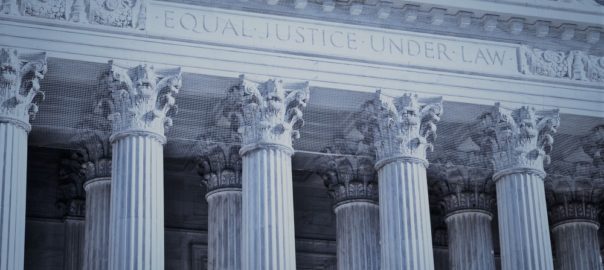Kernan v. Cuero
US Supreme Court
No. 16-1468
Kernan v. Cuero, 2017 WL 5076049 (U.S.,2017)
Decided November 6, 2017
No Specific Performance Enforced On Sentencing Promise Made By The Prosecution
Issue: Whether the California state court decision to amend a criminal complaint after a plea, leading to a higher sentence, involved an unreasonable application of clearly established Federal law, as determined by the Supreme Court of the United States. More specifically, whether the US Supreme Court’s prior decisions required the state court to impose defendant’s original lower sentence or, instead, permit the state to amend a criminal complaint after a plea where it would lead to a higher sentence.
Holding: The Supreme Court held that its prior rulings did not clearly require the state court to impose the original sentence of the plea agreement. “Federal law” as interpreted by the US Supreme Court does not clearly establish that specific performance is constitutionally required.
Facts: In 2005, the state of California charged Cuero with two felonies and a misdemeanor. Cuero originally pleaded “not guilty” but soon after changed his plea to “guilty.” Cuero signed the plea agreement, which stated Cuero “may receive this maximum punishment as a result of my plea: 14 years, 4 months in State Prison, $10,000 fine and 4 years parole.”
Before the sentencing hearing, the prosecution determined that another of Cuero’s four prior convictions qualified as a “strike” and that the previously signed plea form erroneously listed only one strike. The second strike meant Cuero faced a minimum punishment of 25 years instead of the original maximum punishment of just over 14 years, as indicated on the plea agreement. The State asked the trial court for permission to amend the criminal complaint pursuant to California Penal Code section 969.5(a), which provides that such a complaint “may be forthwith amended.”
Despite Cuero’s argument that the motion was untimely and prejudicial, the trial court granted the motion and permitted Cuero to withdraw his guilty plea. The court determined that this case was distinguishable from a situation where the State might attempt to withdraw a plea and add new charges or facts that fundamentally alter the substance of the complaint because here, only alleged prior convictions were amended. The complaint was amended and Cuero was sentenced to 25 years to life in prison.
After exhausting his state remedies, Cuero filed a petition for federal habeas relief in the US District Court for the Southern District of California. The District Court denied the petition, but the Ninth Circuit Court of Appeals reversed. The Ninth Circuit held that the trial court had “acted contrary to clearly established Supreme Court law” by “refusing to enforce the original plea agreement.”
Analysis: Among other conclusions, the Ninth Circuit determined that the state court’s contrary decision was itself “contrary to, or involved an unreasonable application of, clearly established Federal law, as determine by the Supreme Court of the United States.” In contrast, the Supreme Court concluded there was no Supreme Court precedent that “clearly established federal law demanding specific performance as a remedy.”
In Santobello v. New York, 404 U.S. 257 (1971), the US Supreme Court held that a defendant may not be bound to a plea agreement following a prosecutorial breach of an enforceable provision of such an agreement. However, as the Court points out, Justice Berger wrote that the “ultimate relief to which petitioner is entitled” must be left to the discretion of the state court…” Santobello at 262-263.
On the other hand, the Ninth Circuit cited a concurrence from Santobello, in which Justice Douglas added, “a court ought to accord a defendant’s [remedial] preference considerable, if not controlling, weight inasmuch as the fundamental rights flouted by a prosecutor’s breach of a plea bargain are those of the defendant, not of the State.” Santobello 827 F.3d, at 891, n. 14 (quoting Santobello, supra, at 267). The Ninth Circuit suggested that since three Justices agreed with Justice Douglas, and because seven Justices participated in the case, the majority favored looking to the defendant’s preferred remedy.
The Supreme Court disagreed, pointing to its decision in Mabry v. Johnson, 467 U.S. 504 (1984). There, the Court held that “Santobello expressly declined to hold that the Constitution compels specific performance of a broken prosecutorial promise as the remedy for such a plea.” Mabry at 510-511, n. 11 (citing Santobello, 404 U.S., at 262-263; id.,at 268-269). The Mabrey Court also held that “permitting Santobello to replead was within the range of constitutionally appropriate remedies.”
The Supreme Court concluded that the state court’s decision would not be contrary to any holding from the Supreme Court and held that the Ninth Circuit erred when it held that “federal law” as interpreted by the Supreme Court “clearly” establishes that specific performance was constitutionally required.
